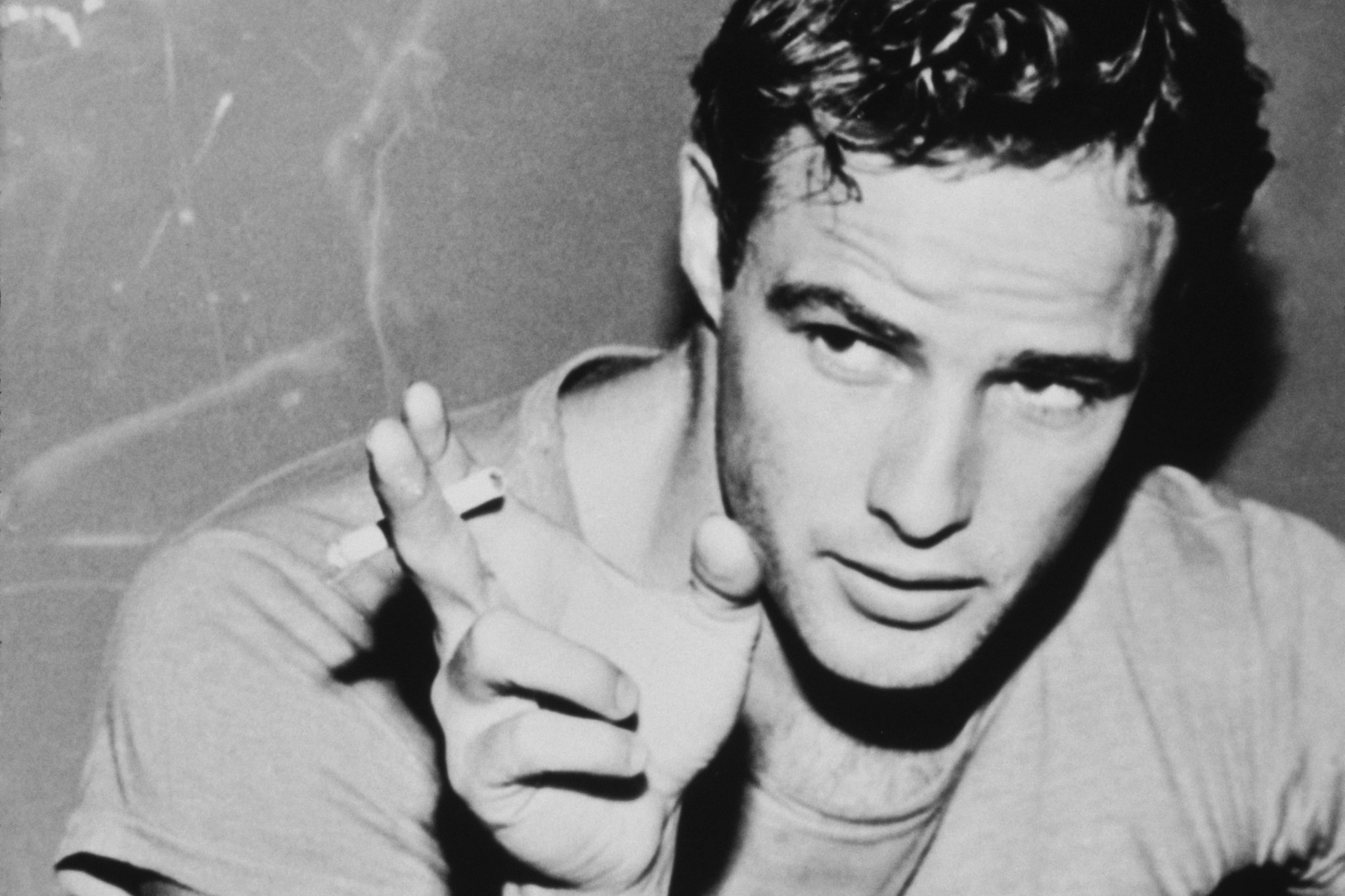In her first piece for TSOTA, Myra Litton reviews Listen to Me Marlon
November 10, 2015

Listen to me Marlon is a touching, well-constructed documentary about the Hollywood actor Marlon Brando’s life using the many audio recordings he made throughout his life to paint a portrait of him telling his story in his own words.
The film starts with a computer-generated image of Marlon’s head–reminding one of a decapitated head–suspended in the universe, quoting Marlon Brando’s words that “one day all actors will be digitalised”. The film then leads onto the memory of his being a boy in Omaha and sitting underneath an elm tree right at the beginning of this life and starts his story.
The film charts Brando’s life punctuated with exquisite footage of him as the young adonis Stanley Kowalski in A Streetcar named Desire and later screen incarnations such as Terry Malloy in On the Waterfront, Fletcher Christian in Mutiny on the Bounty, Kurtz in Apocalypse Now, Don Corleone in The Godfather, and Paul Last Tango in Paris, peppered with revealing footage and memories of his family life, political affiliations, and personal life.
Candid details are revealed such as his inheriting his sense of the absurd from his mother, who could play any song on the piano, before it is revealed that she was a hopeless alcoholic who was never available to him as a child, often being drunk and involved with a theatre company, and that his father, a travelling salesmen, beat him and showed him no love.
Brando was abandoned twice by his mother and later by a nurse called Ermeline who left him to get married. This led to him becoming a miscreant type boy who was sent to military school.
Brando’s salvation came when he enrolled in a higher education facility in New York run by Stella Adler, a motherly Stanislavsky-coached method acting teacher who saw the “world” in him (when he believed he had no talent) and let him into her home, mentoring him and precipitating his acting career.
The film reveals Brando’s involvement in political causes such as the Civil Rights movement in the 1960s and his crusade for the positive representation of Native American Indians in films, and shows him to be a man of great principles, depth, and character.
Excerpts depicting tragedies in his life, such as the suicide of his daughter (Cheyenne from his Tahitian wife) and son Christian’s incarceration, show the toll these tragedies had on him.
The early mentioning of sitting under the elm tree as a young boy comes around full circle at the end of the film.
The spirit of Marlon Brando shines through the film and makes the viewer sympathise with his troubled background and traumatic experiences while being deeply impressed by his talent, character, and intelligence.
Listen to Me Marlon is showing currently at Picturehouse Cinemas.

Comments